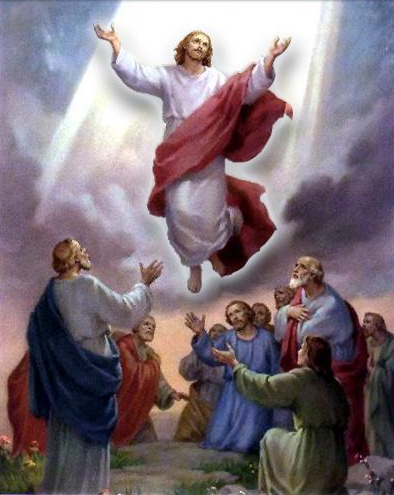
Why is Ascension Day Important?
And when he had said these things, as they were looking on, he was lifted up, and a cloud took him out of their sight. And while they were gazing into heaven as he went, behold, two men stood by them in white robes, and said, “Men of Galilee, why do you stand looking into heaven? This Jesus, who was taken up from you into heaven, will come in the same way as you saw him go into heaven.”
Acts 1:9-11
The ascension is Jesus Christ’s physical return to heaven to be seated at the Father’s right hand after spending forty days on earth following his resurrection (Luke 24:50-51). The historical event that was the ascension is doctrinally important for Christ’s “going to the Father” (John 14:28) is the victorious culmination of his life on earth and his finished work on the Cross. Now, Jesus has made the way for us to enter into the presence of the Father that we might know Him face-to-face, speak to him in prayer, and hear his heart in love (Heb. 4:14-16).
Ascension Day is important because:
One, Jesus’ ascension was the “visible proof” that his victory over death and the devil had been accomplished. Nothing could hold him down. As believers, we can “hold fast our confession” for we are certain of his victory in the end. If Jesus can ascend to heaven, then he can also return “the same way he came” (Acts 1:11). If Jesus’ ascension was physical in space and time, then his coming again in glory will also be evident to all.
Two, the ascension allows Jesus’ ministry to expand for he now sits at the right hand of the Father no longer limited by geography. He intercedes for his people (Heb. 7:23-25), he pours out the Holy Spirit (Acts 2:33) and he walks in and among his churches (Rev. 2:1).
Three, the ascension is the promise that since we are united with Him in very aspect of his work, then we too will ascend to heaven with him in glory (1 Thes. 4:17). Jesus went to heaven as a forerunner and pledge from God that since he lives, we will live also (John 14:28).
While the removal of the guilt of sin was associated with His death, and the destruction of the power of sin with His resurrection, the removal of the separation caused by sin was associated with His Ascension, and herein lies the force of the Apostle’s word: “It is Christ that died, yea rather, that is risen again, who is even at the right hand of God, who also maketh intercession for us” (Rom. 8:34), so in the assurance that “He Himself is the propitiation for ours sins” (1 John 2:2) the conscience and heart find rest. Christ’s righteousness has been accepted, His position is assured, and now access is possible to all believers.
W. H. Griffith Thomas, The Principles of Theology (London: Longmans, Green and Co., 1930), 82.
